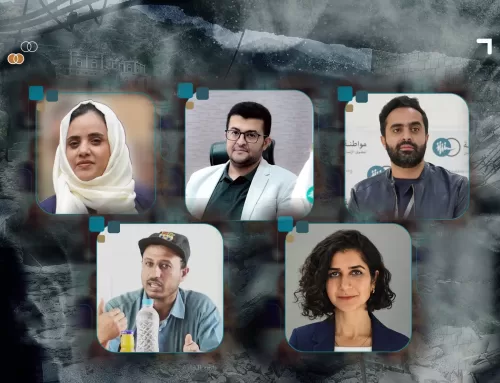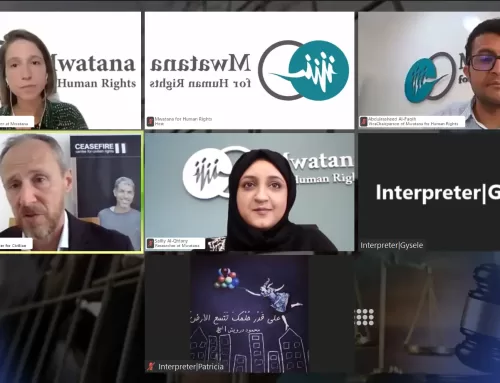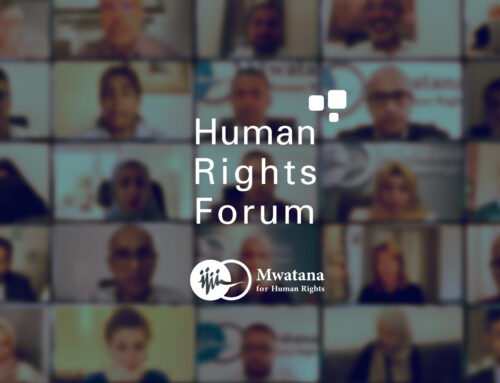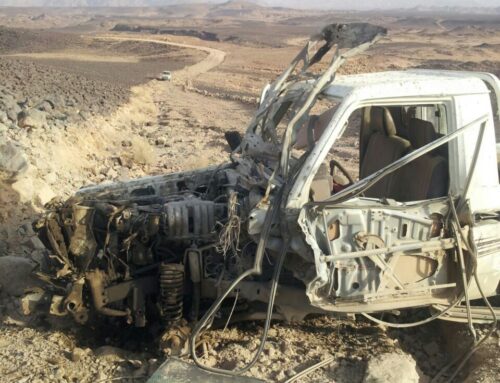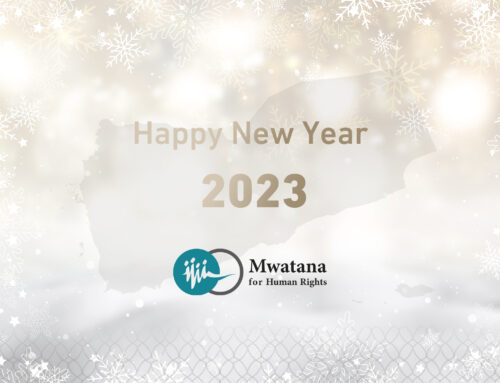Wed – (15 Nov 2017)
Mr. Abdulrasheed Alfaqih, Mwatana for Human Rights executive director participated in the panel discussion that was held by a Group of Friends of WPS . they discussed the implementation of CEDAW and the UN Security Council Resolution 1325 and the supporting resolution on Women, Peace and Security. The event was held in the Canadian Mission to the United Nation, head of the Group of Friends of WPS
Alfaqih delivered the following statement on the state of Women, Peace, and Security in Yemen.
Ladies and Gentlemen
Thank you for this opportunity. I came from Yemen, the country torn by a protracted war for almost three years. My country sees one of the biggest humanitarian crises in the world.
I wished one of my female colleagues stands here and delivers this briefing but this is also another plight of this war. Restrictions have been imposed on the freedom of movement as Sana’a International Airport is still closed in the face of civilians. Women bear the brunt of these restrictions.
My name is Abdulrasheed Al Fakih. I am the Executive Director of Mwatana Human Rights Organization. It is an independent Yemeni organization operating in different parts of Yemen. Mwatana team currently composes of 60 staff members, half of them are females. The organization is chaired by a woman. I am here to express my pride of my female and male colleagues who work under very daunting conditions. I confirm here that our female colleagues are a key strength of our work in serving the causes of human rights and the rule of law. They work with all efficiency, perseverance, responsibility and merit. I am proud of our female colleagues in Mwatana organization and all our female colleagues in different aspects of the human rights and humanitarian work as they represent points of light in the dark world of war.
First of all, I will tell you about my mother, Beshara Al Sofi, who was born and raised in the far countryside of Taiz, central Yemen, where no services, education or health existed. In her early 50s, my mother sought an opportunity for education. She started learning in adult education literacy classes with all enthusiasm and determination. With that seriousness and hard work, I thought my mother would do it and reach a university classroom. However, months after that and with the first letter she wrote to me by herself telling me that she is making progress in her learning, the war has erupted and extinguished her dream. Her literacy classes were closed and she found herself a displaced person as a result of the bloody war in Taiz.
My mother is an example of Yemeni hardworking women in different parts of Yemen who seek education and decent life. She is also an example of what war can do to the dreams of Yemeni women and their basic rights.
The current war drove Yemeni women to the heart of suffering at all levels. Women and children are on top of the lists of civilian deaths and injuries. The rates of child marriage have increased. This practice is in fact a form of sexual violence. As for detention and enforced disappearance of civilians, women are also suffering. In addition to their daily search for their relatives who are in captivity, women were severely beaten by the de facto authorities in Sana’a and Aden several times as they organized sit-ins to demand the release of children, husbands or fathers who are detained for no legal grounds. School dropout ratios have reached unprecedented levels. Most working women in public and private sectors have lost their jobs. Women also disproportionally suffer from the collapse of health services in the country and the different manifestations of the critical humanitarian crisis.
We can say that war undermines the humble gains achieved by Yemeni women in the past decades. It wastes the fruit of their struggle for decades.
During this war, different warring parties did their best to silence the voices of Yemeni women who call for peace and human rights and those who are against war. These women were the subject of defamation campaigns for the purpose of terrifying them and muting their voices.
Yemeni women found themselves alone, as Yemen is, in the face of all this suffering. The government, and other war parties as well, did not exercise any positive role towards women and their issues. They are preoccupied with the conflict.
All parties to the conflict have to be encouraged and reminded of their obligations towards the issues of Yemeni women. They need to be warned of their responsibility and non-impunity in relation to the rights of Yemeni women.
Sadly, everyone is still keen to see a shallow role for women in peace efforts. During peace talks conducted in the past months, women were not allowed to present their issues truly and effectively. Yemeni women struggle in different forms to deliver their voices and to effectively contribute to making peace. These efforts need to be supported. Women need not to be used shallowly. Yemeni women must be given the opportunity to present their issues in an authentic and credible manner in any peace talks.
I hereby call for the enforcement of the General Recommendation No. 30 on women in conflict prevention, conflict and post-conflict situation. An implementation, and a monitoring and evaluation, mechanism need to be designed in relation to the Yemeni case and peace efforts. All forms of support to building the capacities of the Yemeni women movement and enhancing their role in the future have to be provided.
For my mother, and for thousands of Yemeni women, they are waiting for what we do to protect them from this cursed war so they go back to study, and to continue their struggle in life.
Thank you and I wish you all success in this meeting.


